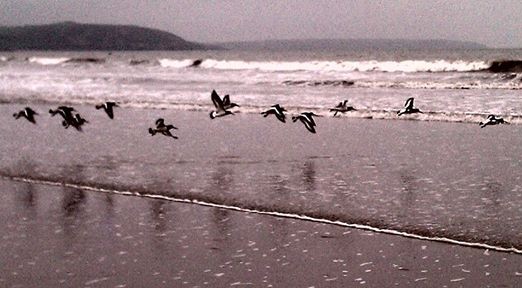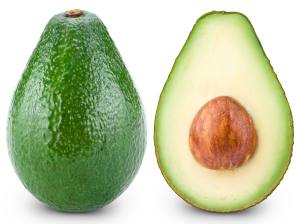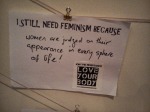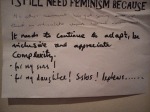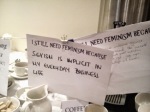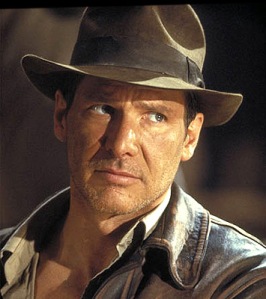
image: empireonline.com
In four weeks time I will sit a significant exam. If successful the trajectory of my life will change. How do I feel? Like Indiana Jones has showed up at my front door and insisted I accompany him on his next hair raising, whip-cracking adventure. Tut tut, you say. Surely I must know that I will be in good hands with Professor Jones? Yes, but what if I let him down? What if I can’t live up to his lofty expectations or meet his exacting needs? What if, due to my lack of experience in the trusted role of side-kick, our quest fails? I’m not much good with water, hate heights and deciphering ancient hieroglyphics certainly is not my forte. The dangers and risks are many: the likelihood of failure too great. I could, of course, just explain all of this to Indiana. He’s a reasonable guy. Hey, he’ll say, we’ll do this together and with a wink he’ll whisk me into action. He too has his fears: snakes.
My fear of failure, especially in exams, stems from my experiences in the classrooms of my youth. I remember when we, students of varying intellectual capabilities, competed with each other either for good grades or other rewards. Plus ça change. I can still see the faces of my opponents: the intelligent girls, the very smart girls, and those including me, who hovered precariously above the range known as average. As an adolescent I hated the locale of average; it made me feel like I had fallen short somehow: never quite clever enough: ordinary. Average wormed its way through me and nibbled away at any hopes I ever had for myself. Dare attempt to raise my little average self above the parapet, aim my arrow a little higher, a little further, a little to the left, or a little the right: Heaven forbid. So, I did what any good descent average person would do: I stepped back and let those unreasonable goals to the intelligent and very clever girls. At least my dignity remained intact.
Among the faces of the eighties there were the teachers who encouraged (a handful) and those who were adept in the art of beating away any semblance of confidence in a student like me; back then it was called getting too big in your boots. So, to acknowledge their unwavering dedication for knocking as much of the good stuff out of me as possible, I would like to propose a toast: To the teacher who snapped the foolscap essay copy from me on Monday mornings, certain (without even reading) that what I presented was average: To the teacher who insisted on leaving my copy book at the bottom of the pile: To the teacher who gave me a thump in the shoulder when I accidentally sewed the hem of my skirt (a class project, that sent the fear of God into us!) crooked. Our brown and peach (I know!) uniform lacked a vital, but very necessary component; one, I believe that should have been compulsory: a cuirass.
Should any of you be still teaching: Note Bene: Confidence and self-esteem in adolescence responds to the above with a sickening thud.
We live in an inherently competitive and cut-throat culture. From early childhood we pit child against child in the classroom. We raise children who believe that in order to succeed they must be the best, the brightest: brilliant. We score their achievements: A, B, C, D. We say things like “could do better”, or the ubiquitous “needs to try harder”. No wonder most children are exhausted by the age of twelve. They are trying harder all the time at subjects their brains are not hard-wired for; subjects that they will never, no matter how much time and energy they pour into, excel at. Outside the classroom, we take it another step: What team sports do you play? What hobbies do you have? Who has given up chocolate for Lent? Who is doing extra Maths after school? Do you attend camp during school holidays? Which ones? It goes on and on…As a society we are placing extraordinary pressure on these young children. Yes, I do know as adults we must prepare our children for the world and adulthood. But, what about just leaving them alone to just be? Allow them to tap into their inner selves and discover who they are? What about teaching children about citizenship? What does being a citizen really mean? It’s hard been a kid. It always has been.
When I was fourteen years old I had to sit a very important (teacher’s words) exam in Chemistry. If I did not pass this exam, the likelihood was that I would not be able to sit Chemistry for my Intermediate Cert (aka Inter Cert). Up to that point, I was barely keeping my head above water; picture a solider fording a river, rifle held high. The truth was I never wanted to study Chemistry, but the class I found myself in was orientated very much towards the science subjects. I tried to prove Chemistry wrong. I could beat it. I would be successful and win. I studied hard. I asked questions. I remembered the answers.
The day came, a Wednesday, and into the lab I went. I took my seat at the bench and waited for our teacher to appear. She didn’t. A tall, lanky young fellow walked into the lab and announced he would be our sub for a few weeks; our teacher was ill. At first, I was relieved: no test. But then, this young sprat went on to say that he knew we were to be tested that day. He turned his back to the class and proceeded to write two questions on the blackboard (it was 1987!). I watched his long letters appear on the board, and as his words formed, I wrote the questions into my test book. And then it happened. The questions on the board were not the questions I had studied. I couldn’t believe it. I knew I was finished: Chemistry had beaten me. I couldn’t even begin to think of what to write. Then, Mary Hannon piped up: Sir, they are not the questions we’ve studied for. His caught ye all out smirk spread like soft butter across his face: Girls, if you studied Chapter Three and Four not only would you be able to answer your prepared questions, but these questions also. We stared incredulously at this sadist. Slowly pens were put to paper. Some wrote pages, some wrote paragraphs and then there was me: I wrote lines: Short lines. The following week my result was revealed: D-. When our teacher returned I was bumped out of Chemistry and found myself in double Biology learning about photosynthesis.
What did I learn from all this? Not much it seems. Throughout my school years, I felt huge pressure to succeed even when I knew my brain was not hard-wired for certain subjects. I continued pushing. There was always a finishing line that needed to be crossed. Failing was not an option. I can’t blame for parents for this. They certainly did not sublimate their ambitions through me. They did though insist that I did my best and try: God loves a trier you know. But, somewhere inside me, a seed had germinated. I nurtured it as a mother nurtures her baby. I watered it. I fed it. I played with it. I even took it out for walks and trips to the park. By the time I was ready for college my baby, fear, was strong and ready to take its place in the world. It was this fear of failure that propelled me into adulthood. I was terrified of letting myself down.
It doesn’t matter from what exactly: the fear of failure sucks. Since life has a tendency to poke and prod, developing coping skills and becoming resilient beings that bend with our failures rather than abandon our hopes of success is of paramount importance. But, it’s not always that simple, is it? How do you grow skin as thick as a rhinoceros in order not to feel that thump on the shoulder? We are, after all, creatures that feel. Fear will curse through our veins ready to emerge at any moment; ready to pulse the very moment we find ourselves becoming audacious: a new goal, a new plan, a new dream. It is often easier to assume the ostrich position: Stick our heads in the sand, don’t do anything to distinguish ourselves from the herd. Settle for mediocrity.
When we settle for less we deny ourselves the joy of daring and looking beyond the pale of mediocrity. We allow our fears to destroy our dreams and rob our lives of hope. I, too, am aware of the crippling effect of fear, and know that if I allow it to consume me I will be no better than the thief that comes and steals during the dark of night; I will have sacrificed above all things loyalty to myself, and will remain a minion. This isn’t a blame game. Blaming others for how we feel, while sometimes feels necessary, is also a way of letting our pain and discomfort go. I do, though, sincerely wish that teachers, and all those who possess huge influence over us during our Wonder Years would just stop and think about that: our Wonder Years. Please don’t knock that out of us too early. Please.
Over the past few years, I have made a concerted effort to help, maybe even heal myself. I have always been on the qui vive for the help I needed. Some of the things I have tried helped, some have not. But, and I love that sometimes there is a but, I’m very happy to say that I have made a wonderful discovery on my quest. I would love to share it with you.
This treasure comes in the form of a wonderful poem. Last Night As I Was Sleeping has transformed how I feel about, and face fear. In his great poem (see below), Antonio Machado conjures image after vibrant image. It’s the second verse that stopped me in my tracks. A powerful, startling image that of a beehive inside his heart, and of bees making sweet honey from his old failures. When I first read these lines, it felt like I had stood upon frozen water that cracked and broke into shards beneath my feet. They broke open a new way of seeing my life. Imagine if we could see all our past failures as so sweet that we could produce sweet honey from them? Failures can instead become the ingredients for new experiences, new ways of being, new worlds. This is simply marvellous: life affirming.
Dare we believe that if we had not encountered these failures we would not be the people we are now. Initially perceived as disasters, our failures are now “making white combs and sweet honey”. What does this really mean? Perhaps, it means that, in the end, everything was as it should have been: as it should be. I cannot begin to tell you how much these words mean to me. They give me a warm fuzzy feeling just like cinnamon, spice my hope like the peppery scent of the geranium and comfort me like hot milk on a cold winter’s night. Like flotsam, I will cling to these words and images for the rest of my days.
Indiana need wait no longer. I’ve done a little research on snakes; just in case we come across any on our quest. I like to feel useful. When the water comes gushing forth, fingers crossed, he’ll somehow keep me afloat. On the rope bridge suspended between the towering cliffs, he’ll find a way to help me conquer my dread of heights. As for the hieroglyphics, I’m a fast learner! Perhaps it is true to say that in the end life is one long quest, sometimes we will reach The Holy Grail sometimes we will not.
It’s time to trust Indiana, step out of average and into possibility.
Last Night As I Was Sleeping
Antonio Machado
Last night as I was sleeping,
I dreamt—marvelous error!—
that a spring was breaking
out in my heart.
I said: Along which secret aqueduct,
Oh water, are you coming to me,
water of a new life
that I have never drunk?
Last night as I was sleeping,
I dreamt—marvelous error!—
that I had a beehive
here inside my heart.
And the golden bees
were making white combs
and sweet honey
from my old failures.
Last night as I was sleeping,
I dreamt—marvelous error!—
that a fiery sun was giving
light inside my heart.
It was fiery because I felt
warmth as from a hearth,
and sun because it gave light
and brought tears to my eyes.
Last night as I slept,
I dreamt—marvelous error!—
that it was God I had
here inside my heart.
Antonio Cipriano José María y Francisco de Santa Ana Machado y Ruiz, known as Antonio Machado was a Spanish poet and one of the leading figures of the Spanish literary movement known as the Generation of ’98. For more information please click
here
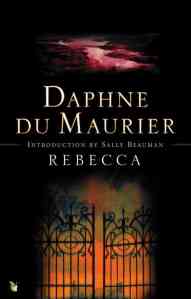 been translated into twenty languages. It has never been out of print and boasts sales of almost four thousand copies a month (source: Telegraph.co.uk). It continues to enthral and fascinate readers as much now as it did in the Twentieth Century.
been translated into twenty languages. It has never been out of print and boasts sales of almost four thousand copies a month (source: Telegraph.co.uk). It continues to enthral and fascinate readers as much now as it did in the Twentieth Century.